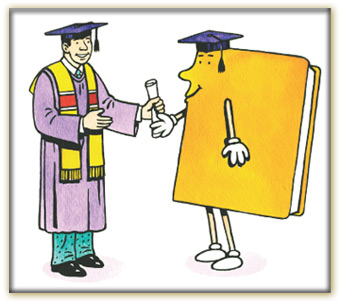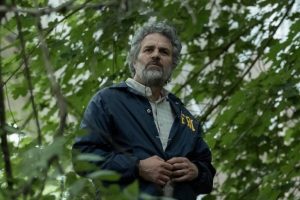Have you read a good book lately? A quarter century ago a dean at Boston College started serving up 27 ways to say yes to that question.
The Dean's List is celebrating its silver jubilee. It came into being as I went from being an economics professor at the University of Michigan to the Dean of the College of Arts and Sciences at Boston College. A novice dean, I was rolled out to address freshmen. Not knowing what else to say, I suggested that since the university had spent a lot of money buying library books, they might consider reading some of them during their four years in Chestnut Hill.
Then I suggested a few books. Hence the Dean's List. The list includes 27 titles, the mystical three cubed, chosen to meet just one criterion: a response to the question, "Have you read a good book lately?"
Some 25 years later, 140 titles have appeared on the Dean's List. A few, the perennials, have been on the list for all these 25 years. Others, the annuals, appear for a year or so and then rotate off to make way for new entries.
The perennials
There are nine perennials. Some have been chosen for personal reasons: James Agee's A Death in the Family because Agee's story of a young boy's dealing with his father's death recalls my own experience at age 10 of the death of a beloved grandfather. Kingsley Amis' hilarious academic novel Lucky Jim appears since I came across it just as I, too, like Jim, was an aspiring assistant professor.
George Bernanos' The Diary of a Country Priest, Robert Bolt's A Man for All Seasons, and Graham Greene's The Power and the Glory remain on the list because they suggest three very different Catholic paths to sanctity. F. Scott Fitzgerald's The Great Gatsby and Robert Penn Warren's All the King's Men are simply great reads.
Kristin Lavransdatter by Sigrid Undset (a Catholic convert and the first woman to receive the Nobel Prize for literature) reappears every year because I am profoundly touched by Kristin's birth-to-death tale, which explores a universally valid human experience set in a late medieval context that can scarcely be imaginable today.
My favorite perennial on the Dean's List is The Fall by Albert Camus. I find Camus attractive for his honest struggle to make sense of his life and the world around him. Jean Baptiste Clamence, the protagonist in The Fall, is like Camus himself.
Returning home one evening, this good man, Jean Baptiste, finds himself alone on a street of Paris. His reverie is suddenly broken by a cry. Someone has either jumped or been pushed into the River Seine. All alone with his conscience, Jean Baptiste has a moment to decide: move to assist this person or pass into the evening shadows.
Jean Baptiste chooses the latter. Hence the fall, or rather three falls: that of an unknown person, Jean Baptiste's own moral fall, and perhaps an echo of that primordial fall in which we all share. I have used Camus' tale in homilies and ask the congregation to reflect how often, alone with our conscience, we too fall. Accompanied by a loved one, might Jean Baptiste more likely choose the better course? Unlike Camus' worldview, the Catholic world is not a dark evening bereft of friends. It is a world of the Incarnation into which Jesus born of Mary has been sent by God to be one with us. Camus and so many today feel, "I am alone. I face life all alone."
The Catholic stance is, "I believe, dear God, I am not alone. Lord, help my unbelief. May I depend on my brother and my sister in a world that is filled with God's signs and presence."
The annuals
In the past quarter century more than 130 annuals have appeared on the Dean's List. Several authors have been represented by more than one title on the list. Alice McDermott, with her masterful depiction of the life and struggles of grandchildren in modern suburbia, has four titles (After This, At Wakes and Weddings, Charming Billy, Child of My Heart).
Four authors have had three books on the Dean's List: Annie Dillard (An American Childhood, Pilgrim at Tinker Creek, The Living), Thomas Flanagan (Tenants of Time, The End of the Hunt, The Year of the French), Suzanne Matson (A Trick of Nature, The Hunger Moon, The Tree-Sitter), and Wallace Stegner (Collected Stories, Crossing to Safety, Where the Bluebird Sings to the Lemonade Springs).
Several selections have Hollywood connections. I thought William Golding's The Lord of the Flies about boys seriously infected with original sin might be a useful corrective to the naive youthful goodness featured in the movie ET. The cinematic presentation of Graham Greene's The End of the Affair prompted the novel's appearance on the Dean's List so that one might see how Hollywood blinked in disbelief when confronted with Greene's stark Catholic faith.
One of my favorites is David McCullough's Truman. A memorable scene describes Truman's reaction upon realizing he is to become the vice president for a dying president. This is a family magazine, so you'll have to check the passage on your own (page 314). They don't make them like Harry anymore.
The most provocative new title on the 2008 list is Until Proven Innocent by Stuart Taylor, Jr. and K.C. Johnson. This disturbing book details how a rogue prosecutor abetted by biased journalists and ideology-driven academics tarnished, perhaps for a lifetime, the lives of three lacrosse players at Duke University. A cautionary tale for our time.
If you have a book for the Dean's List, send it along. But all I can promise is a careful reading by the "committee."
The 2008 Dean's List
1. James Agee, A Death in the Family, 1957 (Vintage, 1998)
2. Kingsley Amis, Lucky Jim, 1954 (Penguin Classics, 1993)
3. George Bernanos, Diary of a Country Priest, 1937 (Da Capo Press, 2002)
4. Ben Birnbaum (ed.), Take Heart: Catholic Writers on Hope in Our Time (Crossroad, 2007)
5. Robert Bolt, A Man for All Seasons, 1962 (Vintage, 1990)
6. Albert Camus, The Fall, 1957 (Vintage, 1991)
7. Brian Doyle, The Wet Engine (Paraclete Press, 2005)
8. Clare Dunsford, Spelling Love with an X: A Mother, a Son, and the Gene That Binds Them (Beacon Press, 2007)
9. Joseph J. Ellis, His Excellency: George Washington (Knopf, 2004)
10. F. Scott Fitzgerald, The Great Gatsby, 1925 (Penguin, 2007)
11. Graham Greene, The Power and the Glory, 1940 (Penguin Classics, 2003)
12. Patricia Hampl, The Florist's Daughter (Harcourt, 2007)
13. David McCullough, Truman (Simon & Schuster, 1993)
14. Alice McDermott, After This (Farrar, Straus, and Giroux, 2006)
15. Antonio Monda, Do You Believe? Conversations on God and Religion (Vintage, 2007)
16. Charles Morris, American Catholic: The Saints and Sinners Who Built America's Most Powerful Church (Vintage, 1998)
17. Henri Nouwen, The Return of the Prodigal Son (Doubleday, 1992)
18. John O'Malley, S.J., The First Jesuits, 1993 (Harvard University Press, 2008)
19. Marilynne Robinson, Gilead (Farrar, Straus, and Giroux, 2004)
20. Michael Shaara, The Killer Angels, 1974 (Ballantine, 2001)
21. Wallace Stegner, Collected Stories, 1990 (Penguin Classics, 2006)
22. Stuart Taylor and K.C. Johnson, Until Proven Innocent: Political Correctness and the Shameful Injustices of the Duke Lacrosse Rape Case (Thomas Dunne Books, 2007)
23. Sigrid Undset, Kristin Lavransdatter, 1922 (Penguin Classics, 2005)
24. Robert Penn Warren, All the King's Men, 1946 (Harvest Books, 1996)
25. Garry Wills, Saint Augustine (Lippur/Viking, 1999)
26. Simon Winchester, River at the Center of the World, 1996 (Picador, 2004)
27. Jay Winik, April 1865, The Month That Saved America (Harpercollins, 2001)














Add comment